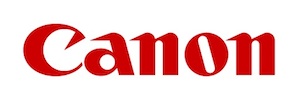Cary Sherburne: Hi, I’m Cary Sherburne, Senior Editor at WhatTheyThink.com and I'm here with Oscar Dubbeldam from Strategy Partners in the Netherlands.
Oscar Dubbeldam: Yep.
Cary Sherburne: And we’ve been talking about some of the differences between United States and Europe, in terms of technologies and how printing is used, and all that. So, some time back I did a case study with a grocery store, I believe it was in Sweden, ICA (eek-a), they call it eeka, and they implemented a new program for their loyalty program members. And they sent them a letter saying you’re going to notice a difference in, you know, communications you get from us, because we’re looking at your last six months worth of purchases, and we’re going to provide you with 20 percent off coupons based on what you’ve bought in the last six months. And one of the TV stations picked it up and said, “Wow this is terrible, it’s an invasion of privacy, they shouldn’t be allowed to do this,” blah, blah, blah, but people were calling the store, saying, “How do I get in on this program because I want the discounts.” So how does that, sort of, play out in Europe?
Oscar Dubbeldam: That’s the European culture, where Europeans want to be on their own, they want to have some sort of cocoon, saying I am a person and I don’t want to share anything with anybody about what I do, and what I sale, and what I buy. If I start recognizing that somebody, especially the government, knows everything about me, then I’m eeww (that’s angry), I was scary. From the other side, especially the Dutch, they love discount coupons. If there is a discount coupon in the newspaper or in a magazine, they will cut it and use it wherever they can. So, it’s that difference of saying well, I don’t trust anybody who knows too much about me. From the other side, I want to benefit from it. So, yes there is some sort of legislation where, for instance, banks cannot go to a consumer or a customer of them, to sale insurances, where they are for bank insurance environment. We had legislation that if you go to the grocery, like ICA in Sweden, we have them also in the Netherlands, where you have your loyalty card. In the end, your loyalty card is only used without any address information.
Cary Sherburne: Oh.
Oscar Dubbeldam: So just for them, for the grocery store, to say, well, what type of groceries are sold within a certain area, but not to respond anymore to the customer.
Cary Sherburne: Hmm.
Oscar Dubbeldam: In the end it still goes to discount coupons, but then, very generic discount coupons.
Cary Sherburne: Yeah. Okay, thank you.

 Official camera partner of WhatTheyThink and the drupa daily.
Official camera partner of WhatTheyThink and the drupa daily. 












